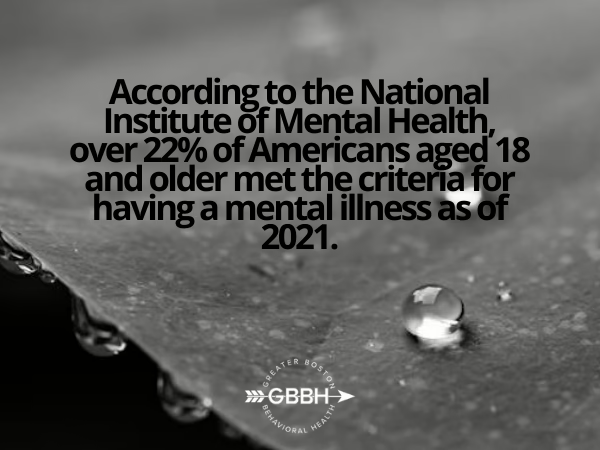Understanding the distinction between emotional health and mental health is essential for overall well-being. While these terms are often used interchangeably, they refer to different aspects of our psychological state. Knowing the differences can help in identifying specific needs and seeking appropriate support.
Defining Mental Health vs. Emotional Health
Emotional Health
Emotional health refers to the ability to manage and express emotions in a constructive way. It involves recognizing and understanding one’s own emotions, coping with life’s challenges, and maintaining fulfilling relationships. Key characteristics of emotional health include resilience, emotional regulation, and positive self-esteem.
Mental Health
Mental health encompasses our cognitive processes, such as thinking, understanding, and decision-making, as well as our emotional and social well-being. It affects how we handle stress, relate to others, and make choices. Key characteristics of mental health include the ability to enjoy life, bounce back from adversity, and balance different aspects of life effectively.
Key Differences: Scope and Focus
Emotional Health
Centers on how individuals manage and express their emotions. It involves recognizing, understanding, and regulating emotions effectively. For example, someone with good emotional health can navigate stressful situations calmly and resolve conflicts in a constructive manner.
Mental Health
Encompasses broader aspects of psychological well-being, including emotional, cognitive, and social elements. This includes how we process information, make decisions, and interact with others. Mental health issues might affect one’s ability to think clearly, make sound decisions, or engage in healthy relationships.
Signs of Good Mental Health vs. Good Emotional Health
Understanding the symptoms and signs of emotional and mental health issues is crucial in recognizing and addressing them effectively.
Emotional Health Issues
- Mood Swings: Rapid changes in mood that may seem disproportionate to the situation.
- Irritability: Increased sensitivity to minor annoyances and a quick temper.
- Emotional Outbursts: Inability to control emotions, leading to sudden outbursts of anger, sadness, or frustration.
- Difficulty in Expressing Emotions: Struggling to articulate feelings or express emotions appropriately.
- Withdrawal from Social Interactions: Avoiding social situations or feeling disconnected from others.
Mental Health Issues
- Persistent Sadness or Depression: Prolonged periods of sadness, hopelessness, and lack of interest in activities once enjoyed.
- Anxiety: Excessive worry, nervousness, or fear about everyday situations.
- Cognitive Impairments: Difficulty concentrating, making decisions, or remembering information.
- Behavioral Changes: Noticeable changes in behavior, such as increased substance use, changes in sleeping or eating patterns, or withdrawal from activities.
- Physical Symptoms: Unexplained aches, fatigue, and changes in energy levels that are linked to mental well-being.
How Emotional Health Affects Mental Health and Vice Versa
Emotional health and mental health are closely linked, and issues in one area can impact the other. For example, chronic stress (a mental health issue) can lead to emotional exhaustion and irritability (emotional health issues). Conversely, unresolved emotional trauma can contribute to the development of mental health disorders like depression or anxiety.
Examples of conditions that impact both emotional and mental health include:
- Depression: Affects emotional well-being by causing persistent sadness and loss of interest, and mental health by impairing cognitive functions and decision-making.
- Anxiety Disorders: Impact emotional health through excessive worry and fear, and mental health by disrupting thought processes and daily functioning.
Why Maintaining Both Emotional and Mental Health Is Crucial for Overall Well-Being
Maintaining both emotional and mental health is crucial for overall well-being. A balanced approach that addresses both aspects can lead to a more fulfilling and resilient life. Emotional health enables individuals to handle life’s ups and downs effectively, while good mental health ensures clear thinking and a stable mood.
Strategies for Maintaining Emotional Health
- Mindfulness: Practicing mindfulness helps in staying present and managing emotions effectively.
- Journaling: Writing about feelings can provide clarity and help in processing emotions.
- Emotional Regulation Skills: Learning techniques such as deep breathing, meditation, and positive affirmations to manage stress and emotional reactions.
- Social Support: Building and maintaining healthy relationships that provide emotional support and understanding.
Strategies for Maintaining Mental Health
- Professional Help: Seeking mental health therapy programs or counseling when needed. Professionals can provide strategies and support to manage mental health issues.
- Medication: In some cases, medication prescribed by a healthcare provider can help manage symptoms of mental health disorders.
- Cognitive-Behavioral Strategies: Techniques such as cognitive-behavioral therapy (CBT) help in changing negative thought patterns and behaviors.
- Stress Management: Incorporating stress-relief activities like exercise, hobbies, and relaxation techniques.
- Physical Health: Maintaining physical health through proper nutrition, exercise, and sleep, as these significantly impact mental well-being.
How GBBH Can Help with Both Emotional and Mental Health Issues
Greater Boston Behavioral Health offers comprehensive programs to support both emotional and mental health.
Tailored to meet individual needs, ensuring accountability through regular check-ins, goal-setting, and progress monitoring. Professional therapists and counselors dedicated to helping you achieve and maintain emotional and mental well-being. Testimonials from clients who have benefited from GBBH support highlight the importance of accountability and support in achieving lasting recovery.
If you or a loved one is struggling with emotional or mental health issues, don’t hesitate to seek help. For more information, contact Greater Boston Behavioral Health at (888)278-0716 and explore our comprehensive mental health programs designed to support your recovery.
Conclusion
Both mental health and emotional health play critical roles in overall well-being. While they are different, they work together to help individuals navigate life’s challenges, build resilience, and maintain healthy relationships.
If you or a loved one is struggling with mental or emotional health challenges, Greater Boston Behavioral Health is here to help.
Call us today at (888)278-0716 to learn more about our and start your journey toward mental and emotional balance.
FAQ On Emotional Health vs. Mental Health
How do emotional health and mental health differ?
Emotional health focuses specifically on managing and expressing emotions, while mental health encompasses a broader range of psychological well-being, including cognitive and social aspects. Emotional health issues might include mood swings and irritability, whereas mental health issues can involve anxiety, depression, and cognitive impairments.
Why is maintaining both emotional and mental health important?
Both emotional and mental health are crucial for overall well-being. Emotional health enables individuals to handle life’s challenges effectively, while good mental health ensures clear thinking and a stable mood. A balanced approach addressing both aspects leads to a more fulfilling and resilient life.
How can Greater Boston Behavioral Health (GBBH) help?
GBBH offers mental health programs in Massachusetts to support both emotional and mental health. With structured programs, an expert team, and client success stories, GBBH provides tailored support to help individuals achieve and maintain well-being. For more information and support, contact Greater Boston Behavioral Health at (888)278-0716.


